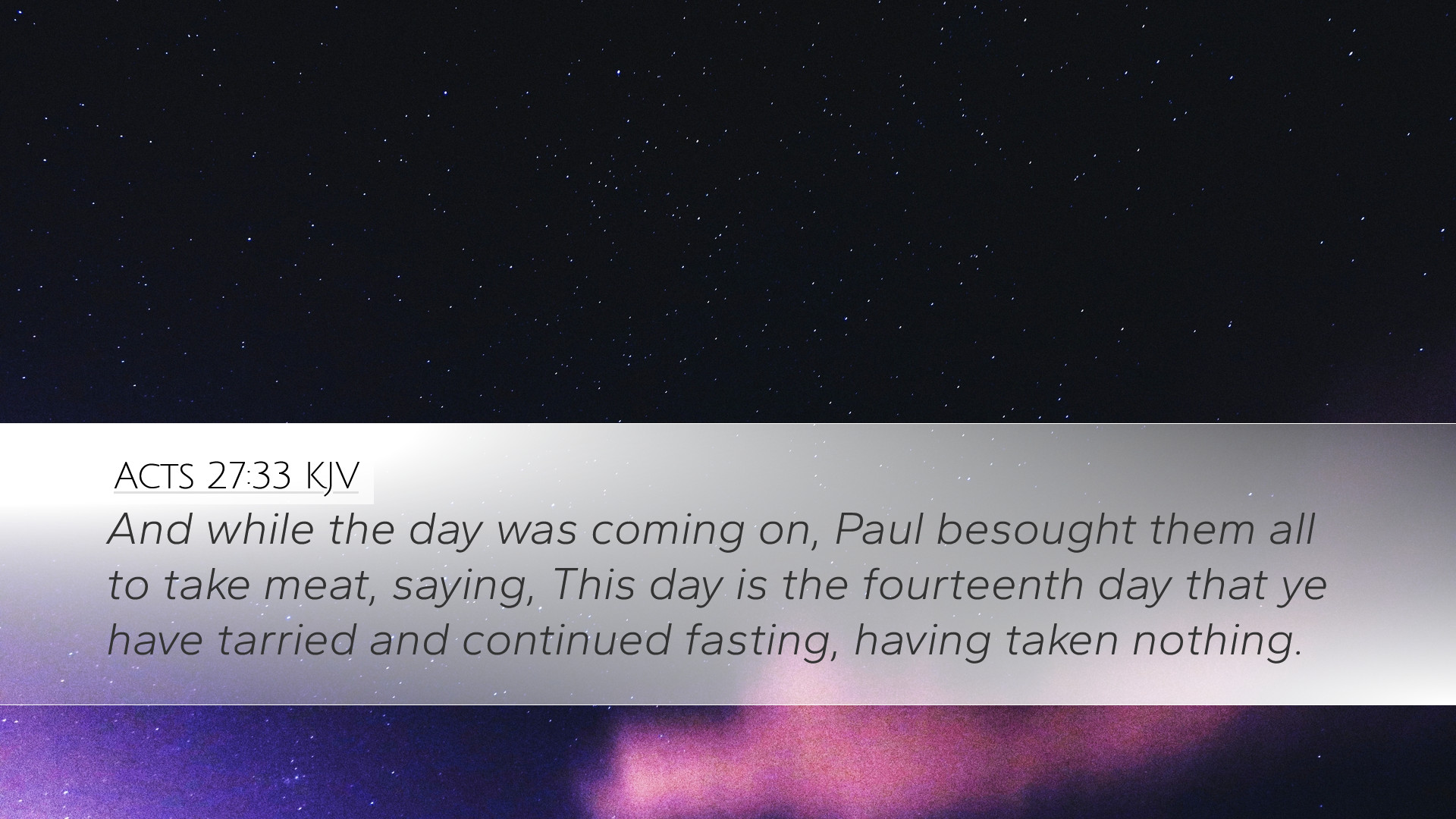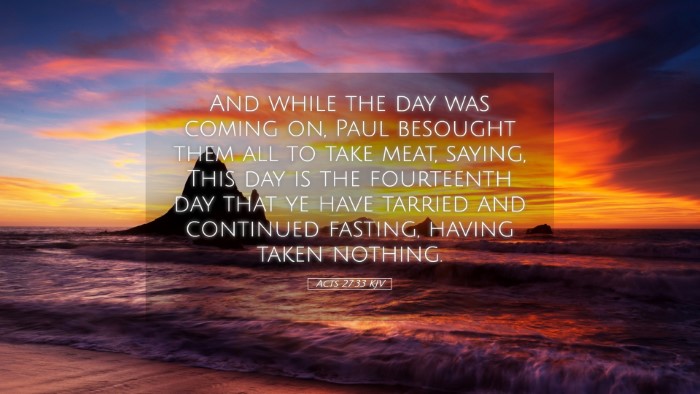Commentary on Acts 27:33
Verse: "And while the day was coming on, Paul besought them all to take meat, saying, This day is the fourteenth day that ye have tarried and continued fasting, having taken nothing."
Introduction
Acts 27 depicts the dramatic voyage of the Apostle Paul to Rome, including the trials of a fierce storm and impending shipwreck. In verse 33, we see Paul concerned for the well-being of the crew and passengers, urging them to eat after a prolonged period of fasting. This poignant moment reflects both Paul's leadership qualities and his pastoral care during distressing circumstances.
Historical Context
The journey took place around A.D. 60–62 when Paul, a prisoner, was being transported to Rome for trial. Commentaries note that the conditions at sea were perilous, with the crew having experienced extreme hardship over fourteen days. The historical context is critical for understanding the urgency in Paul’s call for sustenance.
Verse Analysis
1. Urgency of Action
Paul’s admonition to take food illustrates a pressing need for physical nourishment amidst spiritual and emotional turmoil. The phrase "while the day was coming on" indicates that the situation was dire, emphasizing that time was of the essence. As noted by Matthew Henry, the arrival of light serves as a metaphor for hope, suggesting that Paul had faith for deliverance even in the darkest moments.
2. The Importance of Physical Well-being
Paul’s encouragement to partake in food underscores the biblical perspective on the importance of caring for the physical needs of individuals, especially during trials. Albert Barnes notes that neglecting needs can exacerbate fear and panic. He remarks on how spiritual leaders are often responsible for the physical and spiritual nourishment of those they are guiding.
Theological Implications
This passage invites reflection on the relationship between physical and spiritual sustenance. Paul’s role as both a prisoner and a leader exemplifies humility and authority. Adam Clarke emphasizes that while the circumstances were uncertain, Paul's faith was unwavering. This dual role reinforces the idea that God can use anyone for His purposes, even those in chains.
Faith in Adversity
Paul’s call to eat reminds us that God's provision is not limited to spiritual realms; He is concerned with our physical well-being as well. This highlights a profound truth: faith does not negate the physical. Rather, it embodies a holistic approach to life and ministry, recognizing that spiritual strength may be drawn from physical health.
Practical Application
1. Ministering in Crisis
For pastors and church leaders, this scripture offers a model for sensitive pastoral care, particularly in times of crisis. Taking the time to address physical needs can foster an environment of hope. As demonstrated by Paul, leaders should recognize the holistic needs of those they serve.
2. Community and Care
This narrative also emphasizes the necessity of community support during challenging times. Those on the ship were experiencing fear and despair; thus, Paul's earnest invitation to eat signifies the importance of communal sustenance — both spiritual and physical. In the face of calamity, community bonds grow stronger when leaders advocate for the well-being of all participants.
Conclusion
Acts 27:33 serves as a rich source of wisdom for anyone involved in ministry or academics. The example of Paul, a faithful apostle under duress, calling for care in a time of desperation teaches an invaluable lesson about the balance of spiritual faith and practical action. As Henry, Barnes, and Clarke indicate, in times of storm, let us remember to nourish not only our spirit but also our bodies and community.


